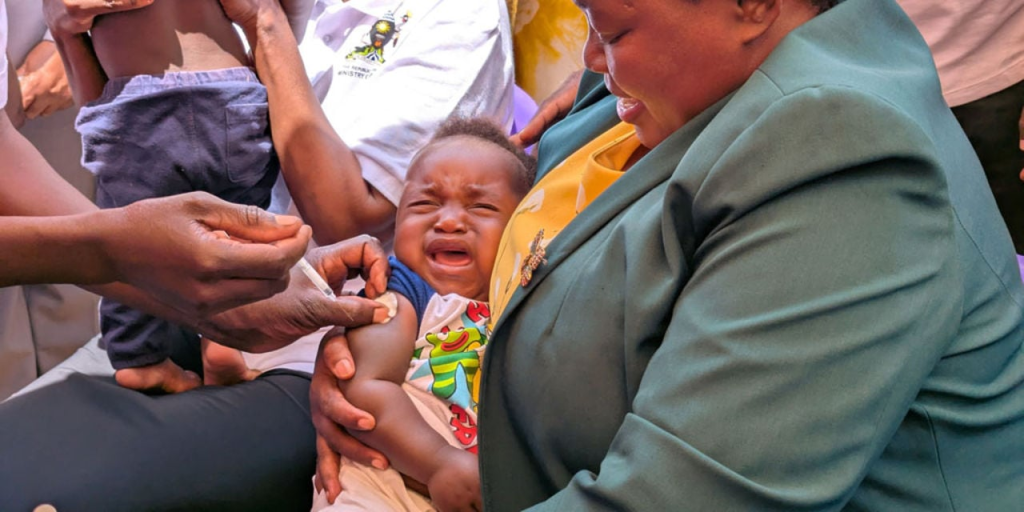On this year’s World Malaria Day, Uganda’s Minister of Health, Dr. Jane Ruth Aceng, delivered a blunt and urgent message to leaders in northern Uganda, criticizing their tepid response to the country’s ongoing malaria crisis.
Her call to action was unequivocal: Uganda can eliminate malaria by 2030—but only if every stakeholder steps up.
While some may view her words as severe, Dr. Aceng’s frustration is grounded in reality. Despite having one of Africa’s strongest health policy frameworks, Uganda remains among the top five countries globally with the highest malaria burden. This isn’t due to a lack of resources, scientific knowledge, or international backing; rather, it stems largely from local apathy, misinformation, and resistance to proven public health interventions.
Uganda shares this unfortunate ranking with Nigeria, the Democratic Republic of Congo, Ethiopia, and Mozambique. Despite notable progress over the years, some regions remain slow to adopt life-saving strategies.
In a pointed address to leaders from the Acholi sub-region, Dr. Aceng said:
“Your immunisation coverage is poor for all antigens, and mortality is high, yet you have the vaccines… Again, don’t lead from the bottom in malaria vaccination. Let us stop the mortality—you have the tools.”

This stark observation highlights a troubling contradiction: the government has made tools like vaccines, indoor residual spraying, and trained personnel readily available—but some local leaders have not championed their use. Consequently, preventable deaths continue to plague communities that could be protected.
Dr. Aceng didn’t hold back:
“We are the ones that are blocking our pathway to ending malaria by 2030… In many parts of the world, malaria has been eliminated. But here, we have failed because we made friends with malaria.”
A cornerstone of Uganda’s malaria strategy is the rollout of the R21/Matrix-M malaria vaccine, which targets 1.1 million children under the age of two across 105 high-burden districts. Defending the vaccine’s safety and efficacy, Dr. Aceng stated:
“The vaccine is pre-qualified and registered in Uganda through the National Drug Authority… After extensive research, it was found to be safe and effective—and we are providing it free of charge.”
This is a critical moment for communities to place their trust in science. Misconceptions and politically fueled skepticism must not derail a campaign that could save thousands of lives.
Government efforts are also being reinforced by organizations such as Pilgrim Africa-Uganda, which is expanding indoor residual spraying (IRS) beyond households to include schools. According to Wyclef Odude, a Vector Control Specialist with the organization:
“We have deliberately decided to enter schools… If we spray both dormitories and classrooms, we protect a large portion of the population.”
However, Mr. Odude warned that these efforts are being constrained by funding shortages:
“The recent stop-work order from the U.S. government curtailed many activities… Most of the funds we use are from donors, and we have very limited local resources.”
This underscores a critical vulnerability in Uganda’s malaria response—its heavy reliance on donor funding. Dr. Kasonde Mwinga, WHO’s Representative to Uganda, echoed the concern:
“If we are serious about ending malaria, we must treat it not just as a health issue, but as a national development priority.”
Uganda has demonstrated progress before. Between 2009 and 2019, malaria prevalence in children under five dropped from 42% to 9%. But maintaining—and accelerating—that momentum requires unified action.
As Dr. Aceng stressed:
“We need to hype our game… We have only five years to 2030 to reach our target.”
The government cannot fight this battle alone. Local leaders, cultural institutions, and communities must take ownership. They must educate the public, dispel harmful myths, and promote consistent use of available interventions.
Malaria is not just a health issue—it is a development crisis. Its impact is measured not only in lives lost but also in missed school days, reduced incomes, and weakened communities.
In her closing remarks to leaders in northern Uganda, Dr. Aceng made a heartfelt appeal:
“Let us work really hard, so our children can go to school.”
That is the ultimate goal: a malaria-free Uganda, where children flourish, communities thrive, and the health system is freed from the burden of a preventable disease.


